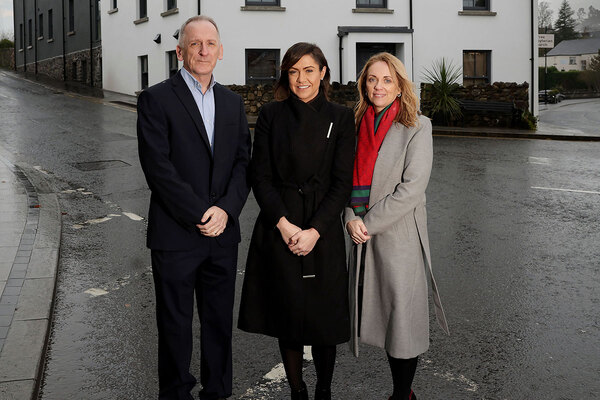Northern Ireland ‘standing still’ on retrofitting homes without executive, warns NIFHA
Northern Ireland is “standing still” on decarbonising homes, the Northern Ireland Federation of Housing Associations (NIFHA) has warned.

The body, which represents 20 housing associations in Northern Ireland, said, in the absence of a functioning executive, the country was in danger of falling even further behind in terms of insulation and retrofitting of stock.
The warning comes after the news that the UK government has allocated an additional £1.25bn to the Social Housing Decarbonisation Fund to improve the energy efficiency of 140,000 social homes between 2025 and 2028.
The government also allocated an additional £1.5bn for its heat-pump upgrade scheme, part of the £6bn package of energy-efficiency measures announced in the Autumn Statement in 2022.
The Welsh government has been allocating funding to social landlords to improve the energy efficiency of homes through its Optimised Retrofit Programme (ORP) since 2020.
However, Northern Ireland has been without a functioning executive in Stormont since first minister Paul Givan, from the Democratic Unionist Party (DUP), resigned in February 2022 in protest against the Northern Ireland Protocol.
The post-Brexit deal means checks are required on goods coming into Northern Ireland from the rest of the UK.
Sinn Féin made history in May after becoming the first Irish nationalist party to win the most votes in a Northern Ireland Assembly election.
But the DUP, which has held the post of first minister since 2007, said it was not prepared to re-enter a power-sharing executive until its concerns about the protocol were dealt with.
This week, prime minister Rishi Sunak offered a new £3.3bn deal for Northern Ireland’s budget in a bid to restore power-sharing.
However, the BBC said it understood that the DUP had ruled out a deal before Christmas.
NIFHA, whose members manage more than 59,000 homes, is calling on an incoming executive in Northern Ireland to make a retrofit programme a priority.
Seamus Leheny, chief executive of NIFHA, said: “Housing associations have been at the forefront of raising standards in housing, particularly in new build.
“Our sector has been proposing a fabric-first approach to improving energy efficiency in homes, which will be the best first step to helping tenants to reduce energy costs – something that we all know is extremely important at the moment.”
But he said “we are standing still with not a single programme in place” in Northern Ireland.
Mr Leheny said: “While we all wait for a restoration of the Northern Ireland Executive and a potential new public services funding model, in the absence of an executive and political decision-making, we will be lagging behind for generations when it comes to the decarbonisation of our housing stock.
“We are aware that financial pressures are faced right across government, and that many departments will be putting their case forward, but the social housing sector is clear that a retrofitting programme should be prioritised.
“As well as addressing decarbonisation and improving energy efficiency, which in turn reduces energy bills, a retrofitting programme also supports the economy, creates jobs and can improve skills through apprenticeships programmes.
“This really must be a priority for an incoming executive.”
Sign up for our Northern Ireland bulletin
Already have an account? Click here to manage your newsletters











